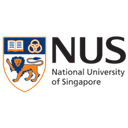Learn about power infrastructure, from generation to distribution. Explore substations, 3-phase systems, and safety mechanisms in this practical course.
Learn about power infrastructure, from generation to distribution. Explore substations, 3-phase systems, and safety mechanisms in this practical course.
This comprehensive course takes learners on a virtual field trip through the world of electricity infrastructure. Students explore real-world installations, gaining practical knowledge about power generation, transmission, and distribution systems. The course covers essential topics including electrical substations, 3-phase power distribution, transformer configurations, and safety mechanisms. Learners will understand AC power systems, grounding techniques, and modern grid challenges with renewable energy integration. Through detailed examination of actual installations, students learn to identify and understand major components in electrical systems, from power plants to consumer units. The course emphasizes practical applications and safety considerations in electrical infrastructure.
4.7
(10 ratings)
Instructors:
English
English
What you'll learn
Understand wire gauge specifications and electrical standards
Explain the advantages of AC over DC in power transmission
Calculate line and phase voltages in three-phase systems
Identify and explain various safety devices in electrical systems
Analyze transformer configurations and substation layouts
Evaluate grid design principles and power distribution methods
Skills you'll gain
This course includes:
PreRecorded video
Graded assignments, exams
Access on Mobile, Tablet, Desktop
Limited Access access
Shareable certificate
Closed caption
Get a Completion Certificate
Share your certificate with prospective employers and your professional network on LinkedIn.
Created by
Provided by

Top companies offer this course to their employees
Top companies provide this course to enhance their employees' skills, ensuring they excel in handling complex projects and drive organizational success.





There are 7 modules in this course
This course provides a comprehensive exploration of electricity infrastructure, focusing on practical applications and real-world installations. Students learn about power generation, transmission, and distribution systems through virtual field visits to solar farms, substations, and transformer rooms. The curriculum covers fundamental concepts of electrical systems, including 3-phase power, transformer configurations, circuit protection, and safety mechanisms. Special attention is given to modern grid challenges and renewable energy integration. The course combines theoretical knowledge with practical examples to provide a thorough understanding of electrical power systems.
Introduction
Module 1
Circuit Breakers and Residual Current Devices
Module 2
Polyphase Power
Module 3
3-Phase Transformers
Module 4
Split-Phase Power
Module 5
Electricity Generation
Module 6
Electricity Distribution
Module 7
Fee Structure
Instructor
Pioneering Optoelectronics Researcher and Educator at National University of Singapore
Aaron Danner is an Associate Professor in the Department of Electrical and Computer Engineering at the National University of Singapore, where he has been teaching since 2006. His expertise lies in semiconductor device fabrication and characterization, with a focus on optoelectronics devices. Danner leads the Optical Device Research Group at NUS, exploring cutting-edge areas in optics and photonics, including materials and structures that enhance light-matter interaction. His research targets applications in optical communications, arbitrary optical wavefront generation and detection, quantum information processing, and holography. Danner's work encompasses industrially-relevant research on vertical cavity lasers, solar cells, and nonlinear optical materials for long-distance optical fiber communications and on-chip quantum optics. He is particularly interested in overcoming fabrication challenges with materials like lithium niobate and barium titanate for photonics-lab-on-chip and quantum-optics-on-chip applications. Danner's group recently secured a $7 million Competitive Research Project from Singapore's National Research Foundation for work on optical Ising machines. Prior to joining NUS, he worked in the semiconductor industry at Agilent's wafer fab division (now part of Broadcom). Danner holds a Ph.D. in Electrical Engineering from the University of Illinois, Urbana-Champaign and is committed to making high-quality educational materials accessible to all, regardless of resources and background.
Testimonials
Testimonials and success stories are a testament to the quality of this program and its impact on your career and learning journey. Be the first to help others make an informed decision by sharing your review of the course.
Frequently asked questions
Below are some of the most commonly asked questions about this course. We aim to provide clear and concise answers to help you better understand the course content, structure, and any other relevant information. If you have any additional questions or if your question is not listed here, please don't hesitate to reach out to our support team for further assistance.



